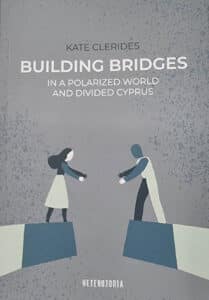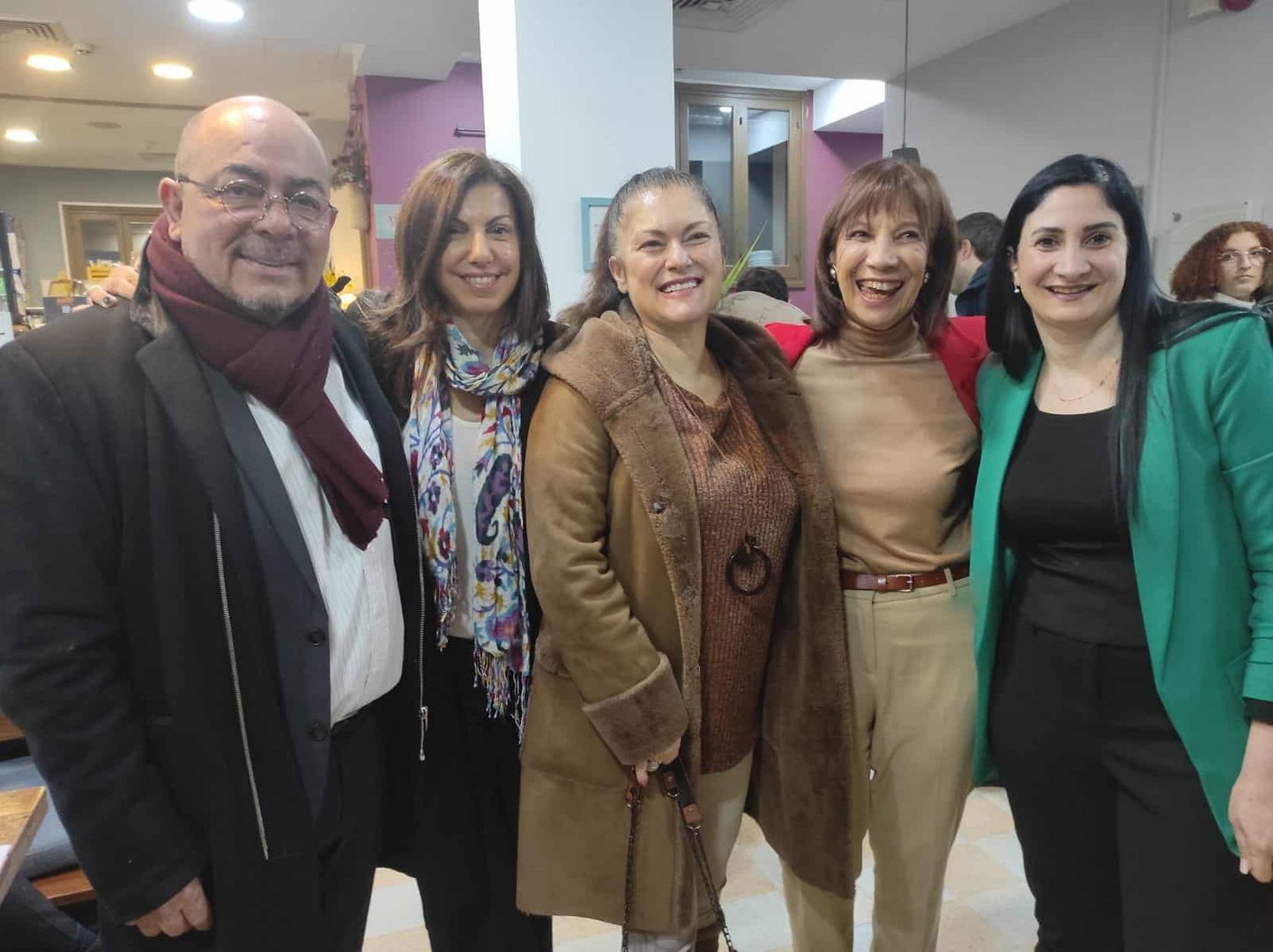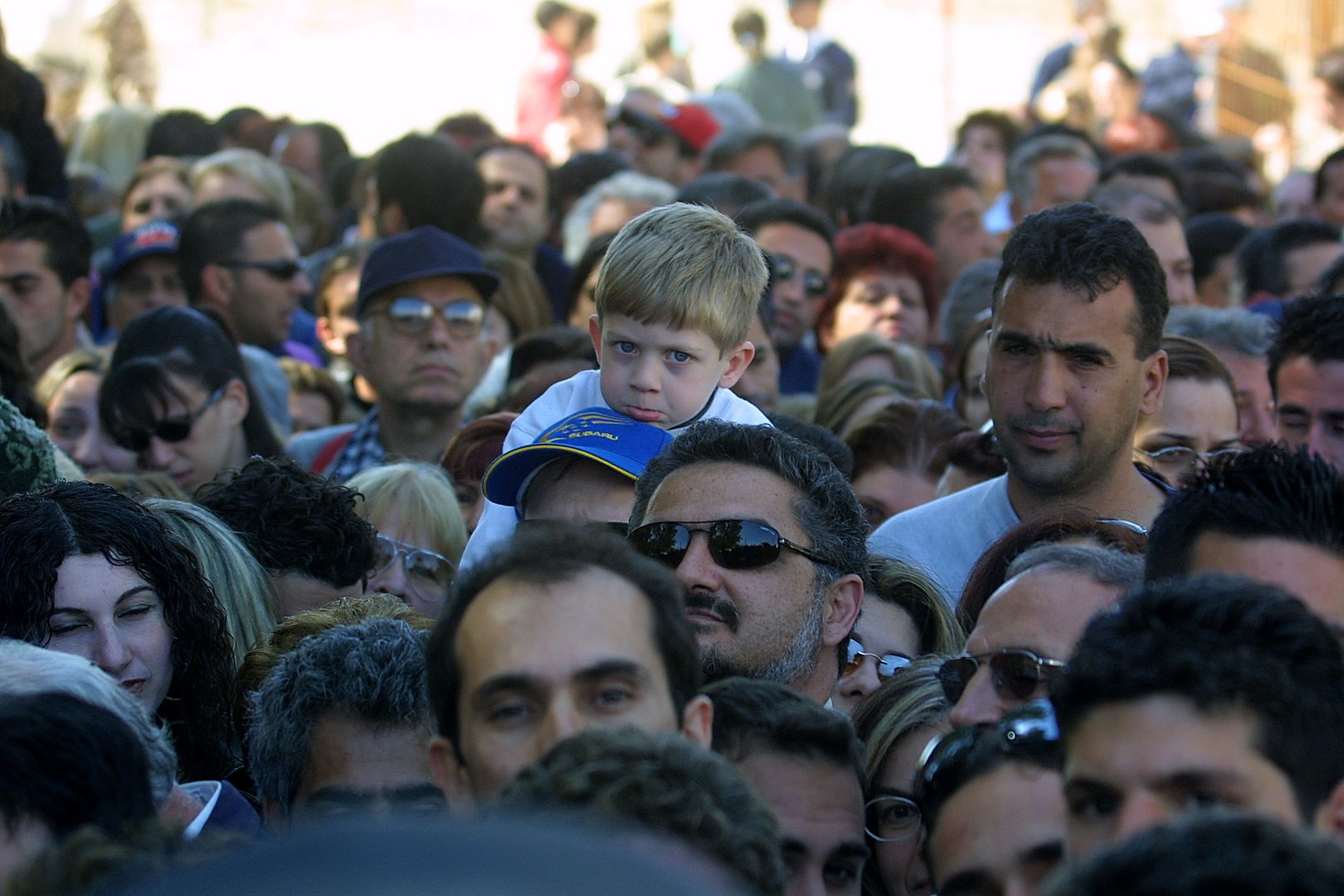Citizen activist and former MP Kate Clerides has been involved in the island’s politics for years. In her new book, she takes readers along on her personal journey
Having spent over 30 years in working in peace building efforts in Cyprus from the bottom up, Kate Clerides uses her book Building Bridges In a Polarized World and Divided Cyprus to detail her own experiences in establishing understanding and conflict resolution.
The book, launched on Friday, sheds light on the difficulties encountered over the decades of conflict in Cyprus, where Greek Cypriots and Turkish Cypriots have been at odds for generations.
Clerides, the daughter of former president Glafcos Clerides, a former MP and presidential commissioner for humanitarian affairs, and now citizen activist explains the complexity of approaching this book, as most people tend to focus on the 1974 invasion without realising that the conflict stretches further back.

The book
“Unfortunately, when we focus on the Cyprus conflict we are focusing on a long-standing and still unresolved conflict. Just how long-standing depends on when you think the conflict started,” she writes in the first chapter of the book.
She details that some Greek Cypriots take the conflict in Cyprus as far back as the fall of Constantinople in 1453, while many Turkish Cypriots take it back to when the Greek Cypriots struggled for union with Greece in the 1950s.
The book also goes into detail about the trauma lived in both communities, and how division worsens the situation, because it allows room for nationalistic rhetoric that causes each community to view the other as the enemy.
Clerides discusses confidence-building measures, and the experience in 2003 when the checkpoints were opened. She talks about how this experience was helpful for many people who wanted to see the other side, but how it still received a mixed reception due to the narratives both communities grew up with.
In her writing, Clerides goes on to describe how peace building and conflict resolution can move forward, going into detail about her personal experiences in a series of workshops conducted in the 90s where members from both communities were brought together to start a discussion on the situation in Cyprus during the 60s and 70s.
Giving her own account in ‘Listening to the other person’s story/humanizing the other’, Clerides talks about what it was like to sit down with a Turkish Cypriot man who detailed his own terror during the July 15 coup, and his experience trying to get home safely without being caught by the insurgents.

Kate Clerides (second right) at the launch
Clerides shared the experience of being under house arrest as her father was an associate of Archbishop Makarios III, and the subsequent Turkish military intervention in 1974.
“We both became aware that the fear, pain, and suffering experienced by people on both sides was, and still is, equally traumatic to the individuals involved. We realised we do not want future generations to experience what we had lived through and decided to try and find a better way forward,” she writes.
Speaking about her inspiration, Clerides said she started writing the book during the Covid-19 pandemic, when the world was faced with some hard truths.
“It was an appropriate time to think about the journey we need to make together from polarisation to consensus, from separateness to community, from duality to oneness,” she said.
In the book, readers are exposed to ways of approaching ideas of conflict resolution, while also journeying with the author in her own experiences related to Cyprus, where the narratives of both sides are complex and have deepened with the passing of time.
Clerides takes the readers on a journey through the history of the Cyprus problem, painting the picture in the context of international relations, by using examples from different countries, but also from her own inside knowledge of the matter in Cyprus.
She also proposes radical ideas that will, as she describes, require both Greek Cypriots and Greece to take a step towards bringing Turkey into cooperation in the region, instead of isolating the country.
Building Bridges In a Polarized World and Divided Cyprus costs €13 and is available from Solonion and Mouflon bookshops in Nicosia







Click here to change your cookie preferences